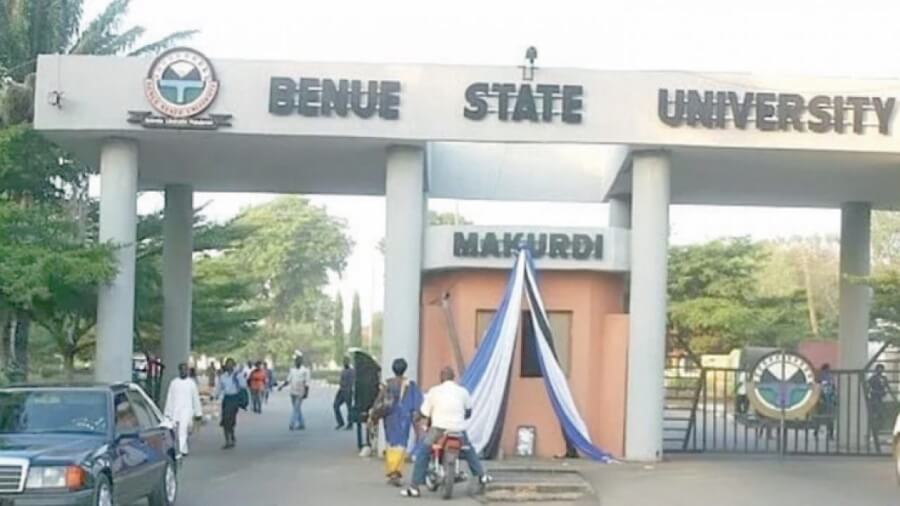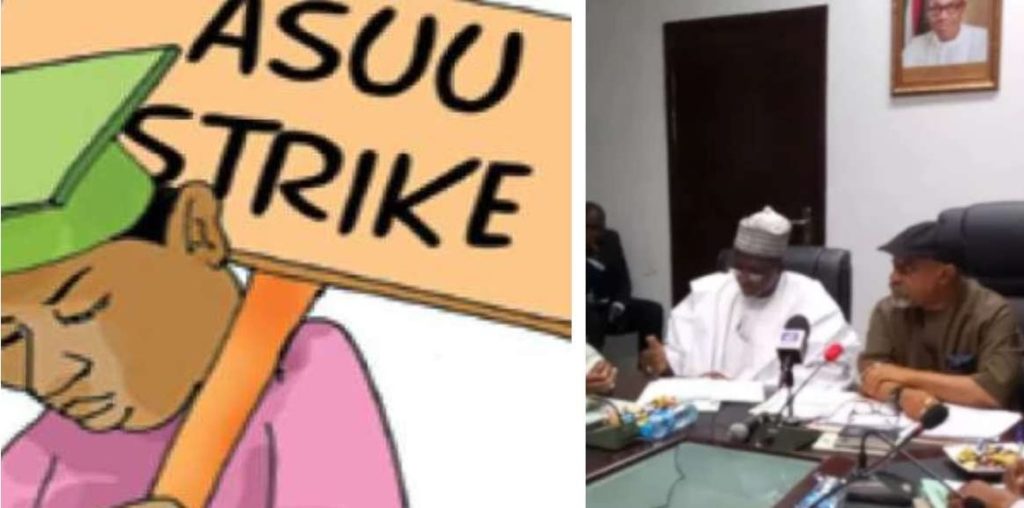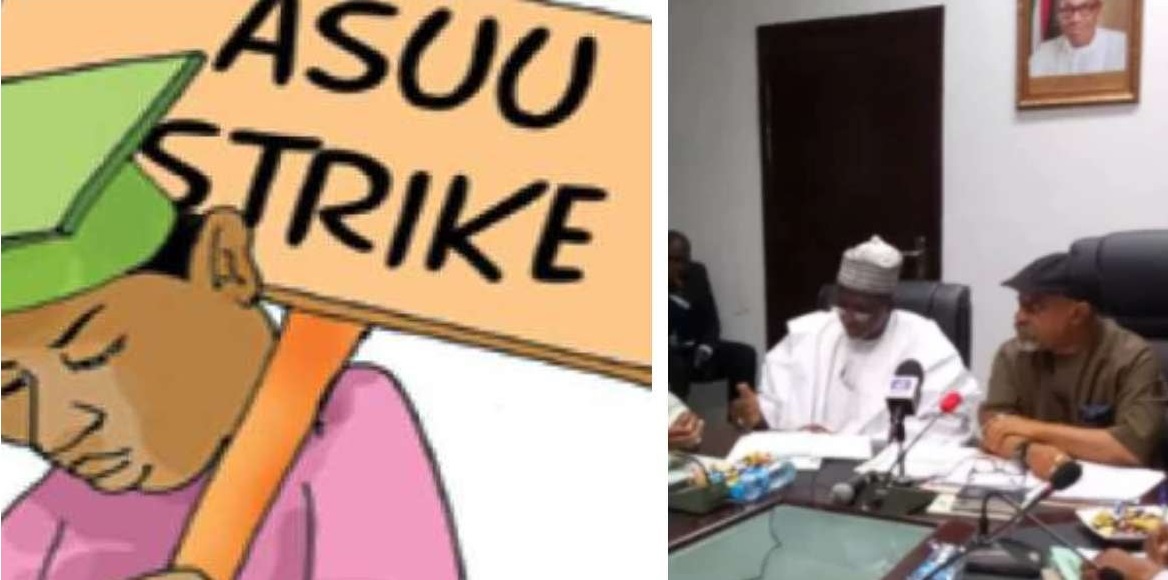Lecturers in federal universities have described students as the biggest losers in the ongoing industrial strike by the Academic Staff Union of Universities (ASUU).
In separate interviews with THE WHISTLER, the lecturers said although the strike has prevented them from lecturing and interfacing with students, they’ve been conducting research and performing all other academic activities from their respective homes.
Professor Sheriffdeen Tella, an Economics lecturer at the Olabisi Onabanjo University, Ogun State, admitted that both lecturers and students are negatively affected by the strike but noted that the students were more on the receiving end.
“The biggest losers due to the strike are the students. The students suffer in the sense that the studies they are supposed to conclude in 4 years are extended, so their time is wasted”, he said.
He added that the parents of the students also suffer greatly, as well as some lecturers who are pursuing postgraduate degrees.
“The parents also suffer a lot because their children will not be able to graduate in time and some of them have more than one child affected, so the cost for each child to go to school will be extended as well and will result in the children being idle at home.

“Don’t forget, some lecturers are also students, they are studying to get their PhD and before you can call yourself a lecturer you must have your PhD and so they cannot graduate as well,” he said.
Asked if incessant strikes could affect the quality of graduates being produced by public universities, the professor responded in the negative.
He said strikes are not the main factor affecting the quality of students but the lack of proper funding of tertiary institutions by the government.
“Even without the strike, the quality is low so it’s not just the strike that affects their quality. What ASUU is fighting for is that the government should properly fund the Universities so that they can revive the dying parts like the practical aspects, because what they mainly do now is more of theory due to the lack of equipment for the practical aspects. So mainly what ASUU is saying is that they want the government to properly fund them so that they can buy all the equipment and the students can see these things and use them before they graduate.
“So, these are some of the reasons why the strike is ongoing, it’s not just about salaries or whatever, even though salaries are part of it, the main issue is that the FG should fund the schools so that the quality of education can improve.
“Even the lecturers, they need to conduct research for them to improve their own quality, because the lecturers are supposed to teach based on their research work, but when the university is not properly funded, it affects their own quality because they cannot carry out experiments, conduct research, or anything of the sort,” he said.
A Mass Communication lecturer at the University of Benue, John Ogi, corroborated the OOU professor and explained how the university lecturers were making use of their time during the strike.
“What people don’t know is that the only thing the strike has affected is the learning environment. We don’t go to classrooms to teach anymore. Besides that, the strike is not total because we are still carrying out our research, we are still doing publications in journals, and we are still doing full-time research.
“As I speak to you, I’m still doing my research at home and doing my normal activities. The only thing that the strike has stopped me from doing is going to classrooms to teach and interface with students. For the students, if they choose to go back and sit at home without reading or updating themselves, it’s completely their own cup of tea, but for us lecturers, our work does not end within the classroom.
“We follow current trends abroad because it’s only in Nigeria that we are on strike. Outside the country, in other universities of the world, activities are going on so we are still sending in our work, attending conferences online and contributing to the education sector outside. Even within Nigeria, we still have Universities that are functioning, that still have activities going on, we are still subscribing to their activities, attending their conferences online, participating in research etc.,” he said.
Ogi stressed that students were mostly affected by the strike because there will be a break in learning for them as a direct result of the strike.

“On the students’ side, the only thing is the break in learning because I can assure you that for the period that these students have been at home, a lot of them are not concentrating on studying thus, there will definitely be a break in knowledge.
“The strike causes repeated breaks in learning so a lot of them will be retarded because what we taught them while the school was in session, now that we are no longer in session and by the time we resume, they would have forgotten them. Probably because of the television programs that they are watching at home or the enjoyment and other activities, there’s definitely going to be a break in knowledge, but for us lecturers, however, I don’t see the strike affecting us in a very big way,” he said.
“One way it will definitely affect them is in terms of funding. Except for those of them who are able to get some little funding from external sources like TETFUND or any other one, they have to use their own money to attend these seminars or sponsor their publications, for those who cannot afford it there is absolutely nothing they can do.
“So, it’s has a big effect on the lecturers as well. There is nothing wrong with us, we are fit to work, we are ready, but the way to move forward is damaged, the government has created a lot of damage so we can’t move forward,” he said.
Regardless of the negative effects of the strike, Ogi said he is fully in support of the strike and ASUU’s reasons behind it.
“I totally support them (ASUU), not because I’m an ASUU member. The first time that ASUU went on strike, people were quick to say ASUU was wicked, a lot of people thought that it was all about us fighting so that they would give us remuneration or pay us money, but the funny thing is if you look at the system, if not for the struggles of ASUU, what would the universities have been like?

“Take for instance Benue State University, for the past almost 10 years now, the state government cannot boast of erecting even one structure in that school. They cannot boast of a single classroom that they’ve built in that school, everything is coming from TETFUND, and TETFUND is an outcome of the struggles of ASUU,” he said.
Ogi further lamented the deplorable conditions under which Federal University lecturers operate in various institutions.
“If you go to some of the Universities, the lecturers cannot even attend conferences and they have to use their salaries to publish textbooks, publish materials in journals, and to attend conferences hosted by other institutions. The Universities cannot even boast of sponsoring lecturers to those conferences so we are using our own money. Meanwhile, the outcome of the productivity is still for the benefit of the Universities.
“So, everything is totally based on the struggle of ASUU, because even with ASUU pushing the government to do the right thing, they are still not doing it,” he added.
He decried the struggles of lecturers, saying that some lecturers cannot even afford to pay school fees for their children meanwhile politicians with less academic qualifications enjoy excessive wealth in Nigeria.
“What justification do you have that a politician who has only first School Leaving Certificate is collecting millions of naira, sitting down doing nothing while moving around with convoys of numerous cars, while people who have taken their time to study and have quality and capacity, are earning little money at the end of the month? Sometimes they can’t even guarantee that their take-home pay is going to take them to the last bus stop to their house.
“Also, it is not just about working and earning salaries, it’s about earning as at when due. These people teaching in Universities have their children studying in primary and secondary schools, yet when those schools resume, as people who teach in the University and know the value of Education, they cannot afford the fees of their wards to send them back to school. Look at the embarrassing situation. A professor can no longer pay to send their child to school while working for the government,” he said.
According to Ogi, ASUU’s struggles should be applauded because the lecturers are the reason the federal university system is still functioning.
“The main thing is for the government to wise up to the responsibility it has. How are they able to get money to fix those things they fix that they don’t need to, yet to fix the educational system, they don’t want to. But all their children and wards are schooling abroad while the children of the poor are here. Mind you, about 70% of Nigerians are poor people.
“So, the total struggle of ASUU is for the benefit of all Nigerians and every rational person should applaud their struggles, because if it weren’t for them, the Nigerian university system would have collapsed,” he said.
ASUU has been on an industrial strike since the 14th of February 2022. The Union embarked on the strike, which is now entered its 15th week, to drive home its demands which include the renegotiation of its 2009 agreement with the government and the deployment of the University Transparency and Accountability Solution (UTAS) to replace the Federal Government’s Integrated Personnel Payroll Information System (IPPIS), among other demands.
It was reported that the last meeting between the Federal Government and the Union, ended in a stalemate, with neither party reaching a definitive agreement.
The meeting was co-chaired by the Chief of Staff to the President, Prof Agboola Gambari, the Sultan of Sokoto, Sa’ad Abubakar, and the Christian Association of Nigeria’s (CAN) President, Dr. Supo Ayokunle, all of whom were unable to successfully persuade the Union to end the strike.
Amongst ASUU’s demands are payment of earned academic allowances, funds for the revitalization of public universities, promotion arrears, and poor funding of state universities.
The union had also insisted on the release of the reports of the government’s visitation panels to federal universities and regular payment of salary to lecturers.
THE WHISTLER
 DailyrecordNg …Nigeria's hottest news blog
DailyrecordNg …Nigeria's hottest news blog









